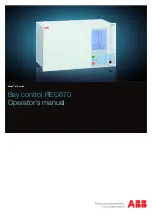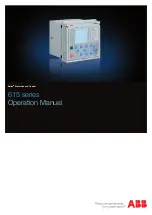
Preliminary
Architecture
www.ti.com
Finally, there is an important advantage to having separate control of pin direction (by PDIR), and the
choice of internal versus external clocking (by CLKRM/CLKXM). Depending on the specific device and
usage, you might select an external clock (CLKRM = 0), while enabling the internal clock divider, and
the clock pin as an output in the PDIR register (PDIR[ACLKR] = 1). In this case, the bit clock is an
output (PDIR[ACLKR] = 1) and, therefore, routed to the ACLKR pin. However, because CLKRM = 0,
the bit clock is then routed back to the McASP module as an "external" clock source. This may result in
less skew between the clock inside the McASP and the clock in the external device, thus producing
more balanced setup and hold times for a particular system. As a result, this may allow a higher serial
clock rate interface.
10.2.8 Operation
This section discusses the operation of the McASP.
10.2.8.1 Data Transmission and Reception
The processor services the McASP by writing data to the XBUF register(s) for transmit operations, and
by reading data from the RBUF register(s) for receive operations. The McASP sets status flag and
notifies the processor whenever data is ready to be serviced.
discusses data ready
status in detail.
The XBUF and RBUF registers can be accessed through one of the two peripheral ports of the device:
•
The data port (DAT): This port is dedicated for data transfers on the device.
•
The configuration bus (CFG): This port is used for both data transfers and peripheral configuration
control on the device.
and
discuss how to perform transfers through the data port and
the configuration bus.
Either the CPU or the DMA can be used to service the McASP through any of these two peripheral
ports. The CPU and DMA usages are discussed in
and
.
10.2.8.1.1 Data Ready Status and Event/Interrupt Generation
10.2.8.1.1.1 Transmit Data Ready
The transmit data ready flag XDATA bit in the XSTAT register reflects the status of the XBUF register.
The XDATA flag is set when data is transferred from the XRBUF[n] buffers to the XRSR[n] shift
registers, indicating that the XBUF is empty and ready to accept new data from the processor. This flag
is cleared when the XDATA bit is written with a 1, or when all the serializers configured as transmitters
are written by the processor.
Whenever XDATA is set, an DMA event AXEVT is automatically generated to notify the DMA of the
XBUF empty status. An interrupt AXINT is also generated if XDATA interrupt is enabled in the XINTCTL
register (See
for details).
For DMA requests, the McASP does not require XSTAT to be read between DMA events. This means
that even if XSTAT already has the XDATA flag set to 1 from a previous request, the next transfer
triggers another DMA request.
Since all serializers act in lockstep, only one DMA event is generated to indicate that all active transmit
serializers are ready to be written to with new data.
shows the timing details of when AXEVT is generated at the McASP boundary. In this
example, as soon as the last bit (bit A0) of Word A is transmitted, the McASP sets the XDATA flag and
generates an AXEVT event. However, it takes up to 5 McASP system clocks (AXEVT Latency) before
AXEVT is active at the McASP boundary. Upon AXEVT, the processor can begin servicing the McASP
by writing Word C into the XBUF (Processor Service Time). The processor must write Word C into the
XBUF no later than the setup time required by the McASP (Setup Time).
The maximum Processor Service Time (
) can be calculated as:
Processor Service Time = Time Slot - AXEVT Latency - Setup Time
1040
Multichannel Audio Serial Port (McASP)
SPRUGX9 – 15 April 2011
© 2011, Texas Instruments Incorporated
Содержание TMS320C6A816 Series
Страница 2: ...Preliminary 2 SPRUGX9 15 April 2011 Submit Documentation Feedback 2011 Texas Instruments Incorporated...
Страница 92: ...92 Read This First SPRUGX9 15 April 2011 Submit Documentation Feedback 2011 Texas Instruments Incorporated...
Страница 1122: ...1122 Multichannel Audio Serial Port McASP SPRUGX9 15 April 2011 Submit Documentation Feedback 2011 Texas Instruments Incorporated...
Страница 1562: ...1562 Real Time Clock RTC SPRUGX9 15 April 2011 Submit Documentation Feedback 2011 Texas Instruments Incorporated...
Страница 1658: ...1658 Timers SPRUGX9 15 April 2011 Submit Documentation Feedback 2011 Texas Instruments Incorporated...
Страница 1750: ...1750 UART IrDA CIR Module SPRUGX9 15 April 2011 Submit Documentation Feedback 2011 Texas Instruments Incorporated...
Страница 1984: ...1984 Universal Serial Bus USB SPRUGX9 15 April 2011 Submit Documentation Feedback 2011 Texas Instruments Incorporated...
















































